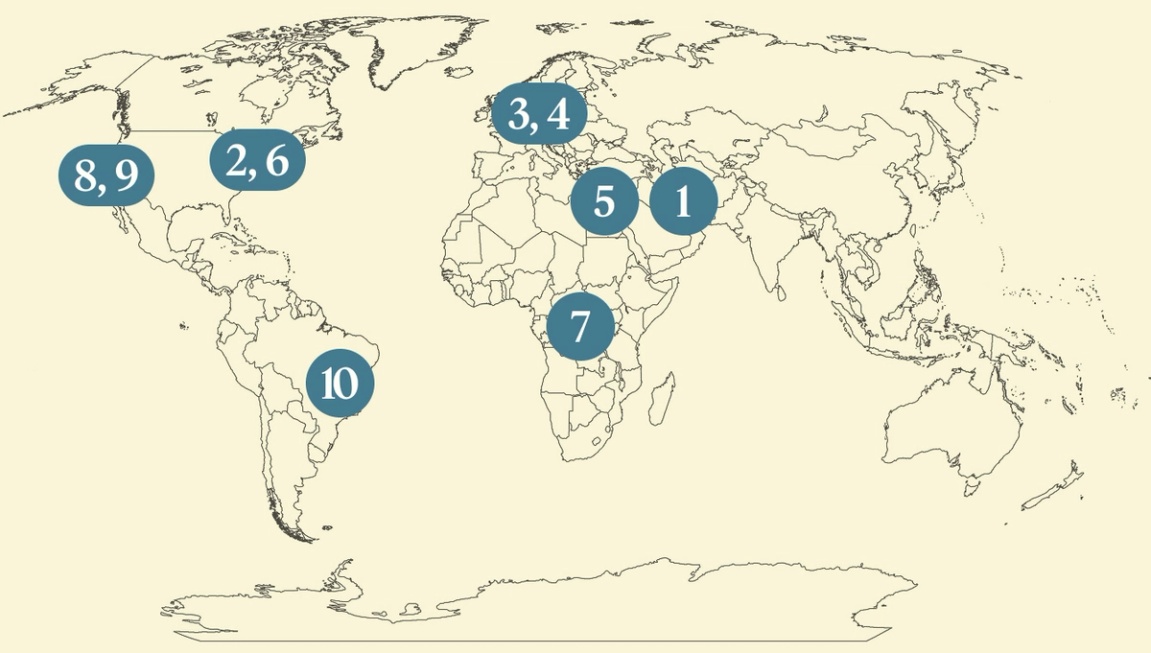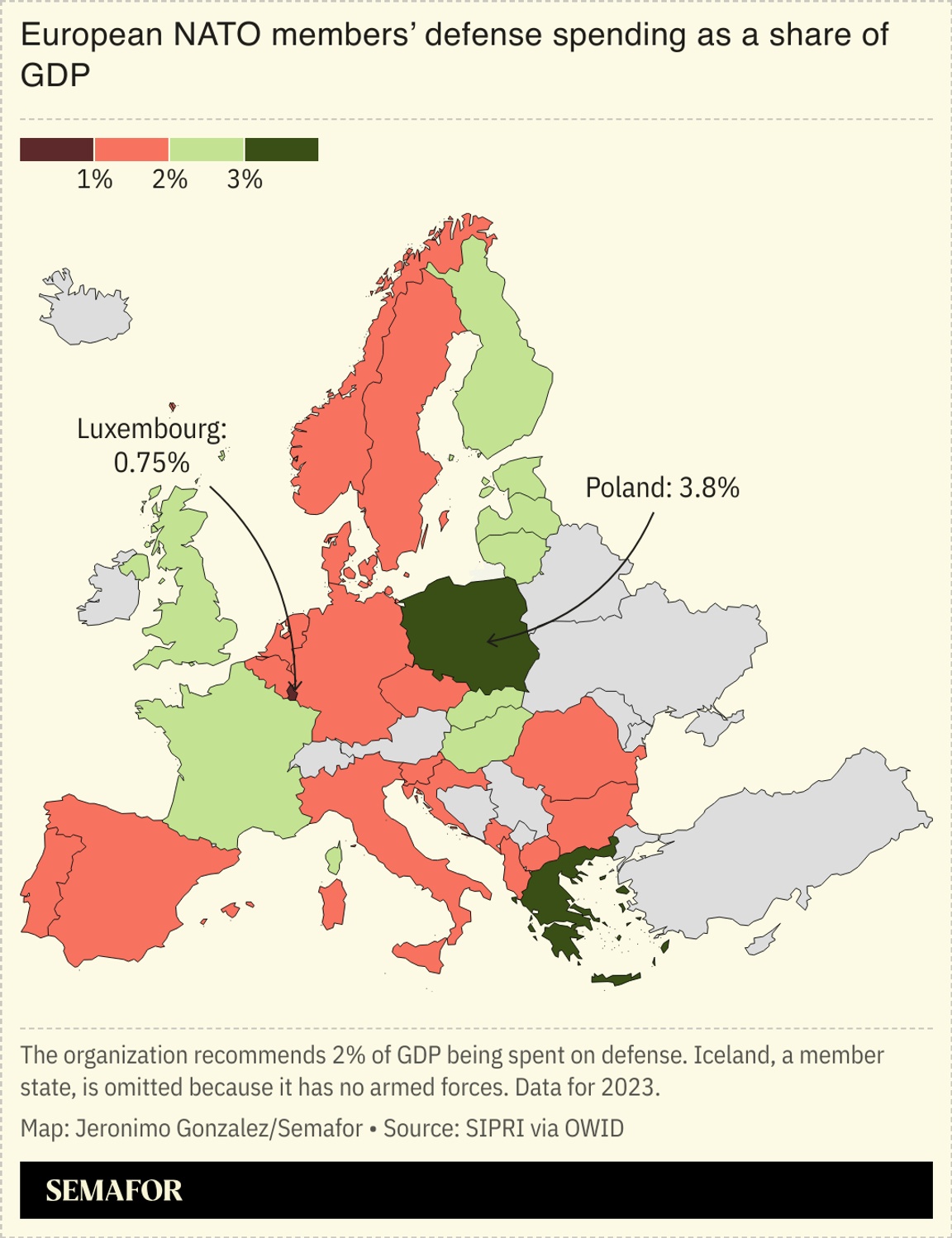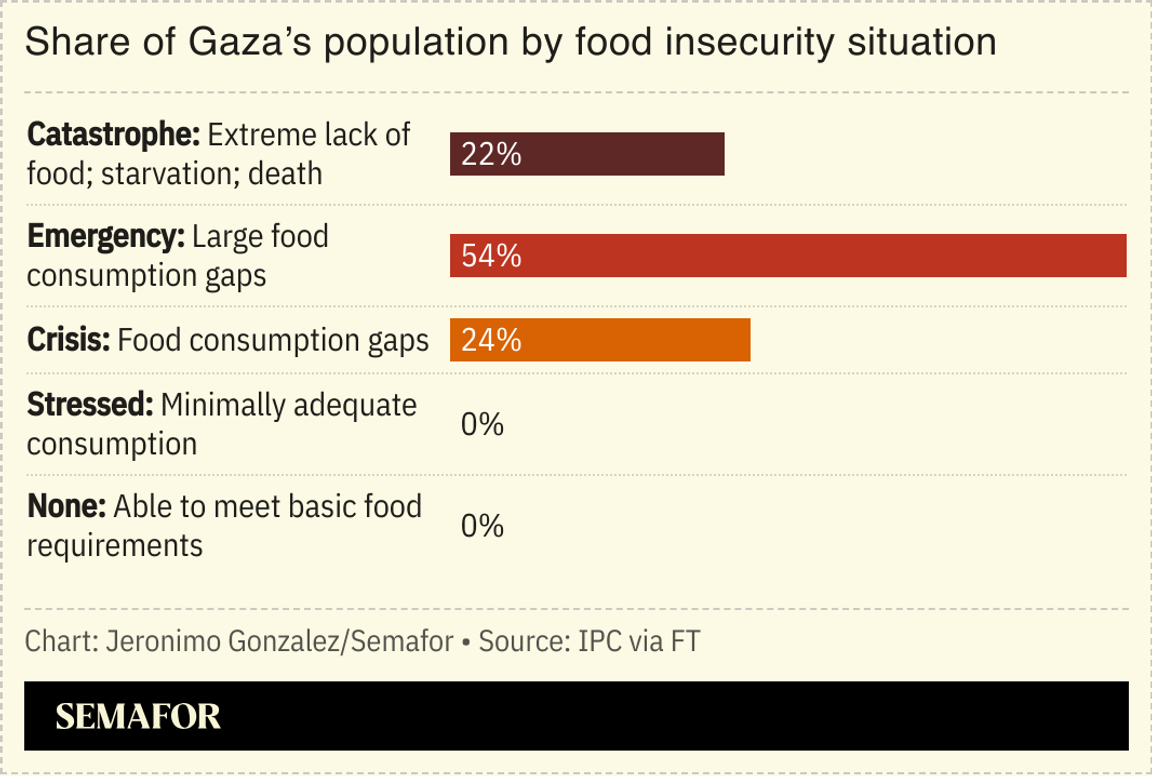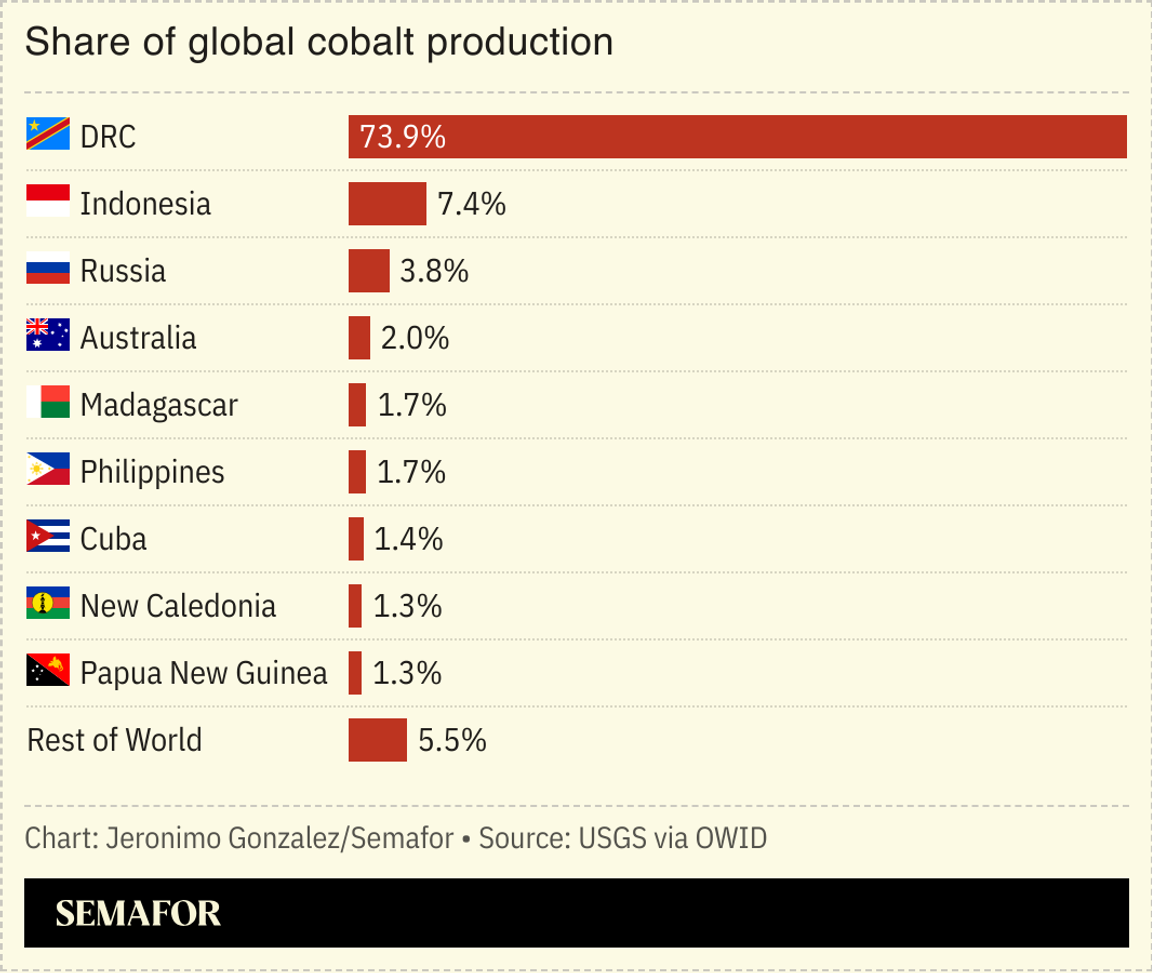| | An uneasy peace may be in place in Iran, NATO holds its most consequential summit in years, and recr͏ ͏ ͏ ͏ ͏ ͏ |
| |   The Hague The Hague |   Rio de Janeiro Rio de Janeiro |   Kinshasa Kinshasa |
 | Flagship |  |
| |
|
The World Today |  - Iran ceasefire in doubt
- The new US world order
- NATO’s key summit
- Berlin mulls conscription
- Gaza nears starvation
- Powell faces rates grilling
- African resource nationalism
- Recruiters face AI sludge
- Data’s doorbell problem
- Brazilian soccer woes
 China’s investment in Brazil, and recommending an Oscar-winning movie on its 20th anniversary. |
|
Fragile ceasefire in doubt |
 Majid Asgaripour/WANA/Reuters Majid Asgaripour/WANA/ReutersAn uneasy ceasefire between Iran and Israel may already be crumbling, shortly after US President Donald Trump announced an end to the “Twelve Day War.” Iran’s retaliation to American strikes on its nuclear facilities was widely seen as tokenistic, and Tehran said it did not intend to continue. Trump said Israel and Iran had “gotten it all out of their ‘system’” and could now “proceed to Peace and Harmony.” But within hours, Israel said it had detected a missile launched from Iran and promised to “respond forcefully;” Iran denied firing weapons. If the ceasefire does hold, it would represent a successful gamble for Trump, the BBC reported: Oil prices tumbled and markets rose slightly after his announcement, suggesting investors are optimistic. |
|
Trump’s threat to world order |
 US President Donald Trump’s foreign policy risks entrenching a world order that is damaging to American interests, prominent experts argued. Trump’s antagonizing of American allies — either by threatening to annex them, raising the specter of heavy tariffs, or both — assumes that other countries have “no alternative to capitulation,” ultimately resulting in “a more hostile order in which American power will fade,” the George W. Bush administration official Kori Schake argued in Foreign Affairs. And unlike after Trump’s first term, when he leaves office in 2029, “there will be no going back,” two former national security staffers in the Biden administration warned. “Four years from now, many of the familiar pillars of US grand strategy… will likely be transformed beyond recognition.” |
|
 NATO leaders gather in the Hague today for one of the alliance’s most significant gatherings in years. US President Donald Trump is expected to attend the first summit of his second term despite his fractious relationship with the alliance, which has seen him accuse NATO members of freeloading. The allies will likely agree a steep increase in defense spending today following delicate negotiations by the new Secretary General Mark Rutte. In a further sign that NATO is reshaping itself in the face of Trump’s isolationism, the European Union and Canada yesterday signed a defense partnership aimed at reducing their reliance on “an increasingly capricious” US, The New York Times reported. |
|
Germany mulls conscription |
 Ints Kalnins/File Photo/Reuters Ints Kalnins/File Photo/ReutersGermany will turn to conscription if there are not enough volunteers for its armed forces, its defense minister said. Berlin is keen to increase its military heft, and intends to double its army reserves. But Boris Pistorius wants to write a fallback position into the legislation boosting voluntary signups, allowing Germany to introduce a draft “if the numbers are not sufficient.” Germany’s World War II legacy has long complicated its relationship with its military, but since Russia’s 2022 invasion of Ukraine the country has become more unapologetic: Chancellor Friedrich Merz said he wanted Germany to have Europe’s “strongest conventional army,” and scrapped debt rules to allow greater defense spending. It also held its first ever veterans’ day memorial this month. |
|
Gazan children face starvation |
 Gazan parents are feeding their children milky water to stave off starvation as Israel continues to withhold sufficient aid. The UN called the enclave “the hungriest place on Earth” in May, warning that the entire population was on the edge of famine, and the situation has not improved: A UNICEF spokesperson said this month that children are “without a doubt” starving, with more than 5,000 aged below five admitted to hospital for acute malnutrition last month alone. Israel has allowed some aid through, but it represents only a fraction of what the population requires, the Financial Times reported, while hundreds have been killed amid chaos at distribution points, Hamas-run authorities report. |
|
Powell to testify on rate holds |
 Kevin Mohatt/File Photo/Reuters Kevin Mohatt/File Photo/ReutersFederal Reserve Chair Jerome Powell will testify before US lawmakers today to explain the central bank’s decision to keep interest rates on hold. The Fed chair is under pressure from President Donald Trump to cut rates, amid reported divisions with central bank colleagues over the direction of monetary policy. The Oval Office’s public complaints have “little modern precedent,” The Wall Street Journal’s chief economics correspondent noted; two Trump-appointed policymakers have also called for easing. Powell’s choice is difficult: The Fed could cut rates early and risk stoking inflation, or move too late and weaken its hand with the White House if the economy slows. Meanwhile, traders are already shifting focus from the “Middle East to Powell,” ING analysts said. |
|
Africa tightens grip on minerals |
 Governments across Africa have tightened their control of key minerals, the latest signs of a shift toward resource nationalism. DR Congo, the world’s top producer of cobalt — a key component in batteries and mobile phones — said it would halt exports of the mineral as it looks to boost prices, while Niger said it would nationalize a French-run uranium mine. As China, the US, and Russia vie for control of Africa’s natural resources, nations on the continent have moved to develop their refining and manufacturing abilities as they look to gain a firmer grip on valuable supply chains. After decades of exporting their mineral riches only to boost economic growth elsewhere, African nations are determined “to avoid repeating the ‘resource curse’ mistakes of the past,” law firm Covington wrote last year. |
|
Recruiters swamped with AI applications |
 Aly Song/File Photo/Reuters Aly Song/File Photo/ReutersRecruiters are being overwhelmed by thousands of artificial intelligence-generated job applications. Applications submitted via LinkedIn jumped 45% this year, with the site now clocking 11,000 applications per minute: One consultant told The New York Times that she was “inundated” after receiving 1,200 responses to a single post within days. ChatGPT and others can generate resumés containing every keyword from a job description in minutes, and recruiters say it is increasingly hard to tell who is genuinely qualified. An arms race is under way, as HR staff use chat or video interviews — themselves sometimes conducted by AI — to avoid the fake resumé sludge. But some applicants also use AI to cheat in interviews by asking chatbots to provide answers. |
|
 Can we reconnect a generation? A mental health crisis is gripping young people, with rates of depression, anxiety, and loneliness rising. As social bonds fray and digital life deepens isolation, experts are sounding the alarm and demanding action. Join Daniel Zoltani, Executive Director of the Whole Foods Market Foundation; Sara DeWitt, Senior Vice President and General Manager of PBS KIDS; January Contreras, Former Assistant Secretary for the Administration for Children and Families, US Department of Health and Human Services; and Steve Bullock, Former Governor of Montana, as Semafor explores the complex drivers of youth wellbeing, highlighting opportunities to rebuild social ties, foster resilience, and develop lasting strategies to improve the mental health of young people. July 16, 2025 | Washington, DC | RSVP |
|
 Wikimedia Commons photo/Ring/CC BY-SA 4.0 Wikimedia Commons photo/Ring/CC BY-SA 4.0Caller ID and video doorbells are playing havoc with demographic statistics. To get representative data, populations should be sampled at random: Pollsters and statisticians will phone numbers or visit homes at random. One obstacle is that people do not answer at random: some people may be more likely to answer, skewing your sample that way. That problem has worsened: More people now ignore unknown phone numbers or strangers whose faces appear at the door, making those who do answer less representative of the population at large. Britain’s chief national statistician resigned last month after key unemployment data was found to be untrustworthy thanks to patchy response rates, Bloomberg reported, with Australia and the US reporting similar problems. |
|
|